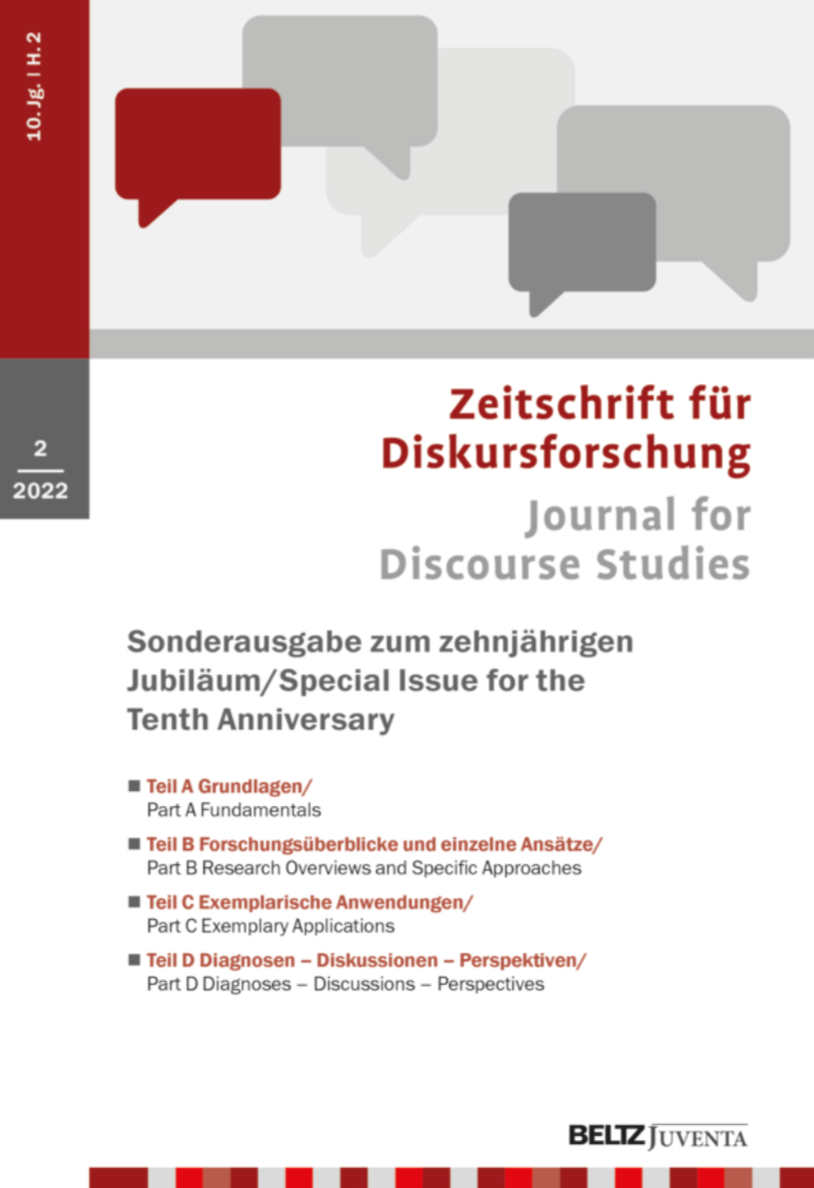
Based on the omnipresence of euphemistic talk about listening, the essay examines the network of relationships between listening and discourse. A widespread myth, in which listening is understood in isolation as a replicative action and the imponderables of listening are systematically covered up, is contrasted with the assumption that listening is language in contradiction and as such constitutive for discourse and vice versa. The question is about the possibilities of a sociolinguistics of listening and in particular about a conceptual classification of listening in the field of tension between the positivity of speech and the intentionality of listening. I speak of discourse phenomenology, without overlooking the fact that this also breaks up a scientific-historical juxtaposition of discourse analysis and phenomenology.
Zeitschrift für Diskursforschung 2. 176 – 182.
DOI: 10.3262/ZFD2202176